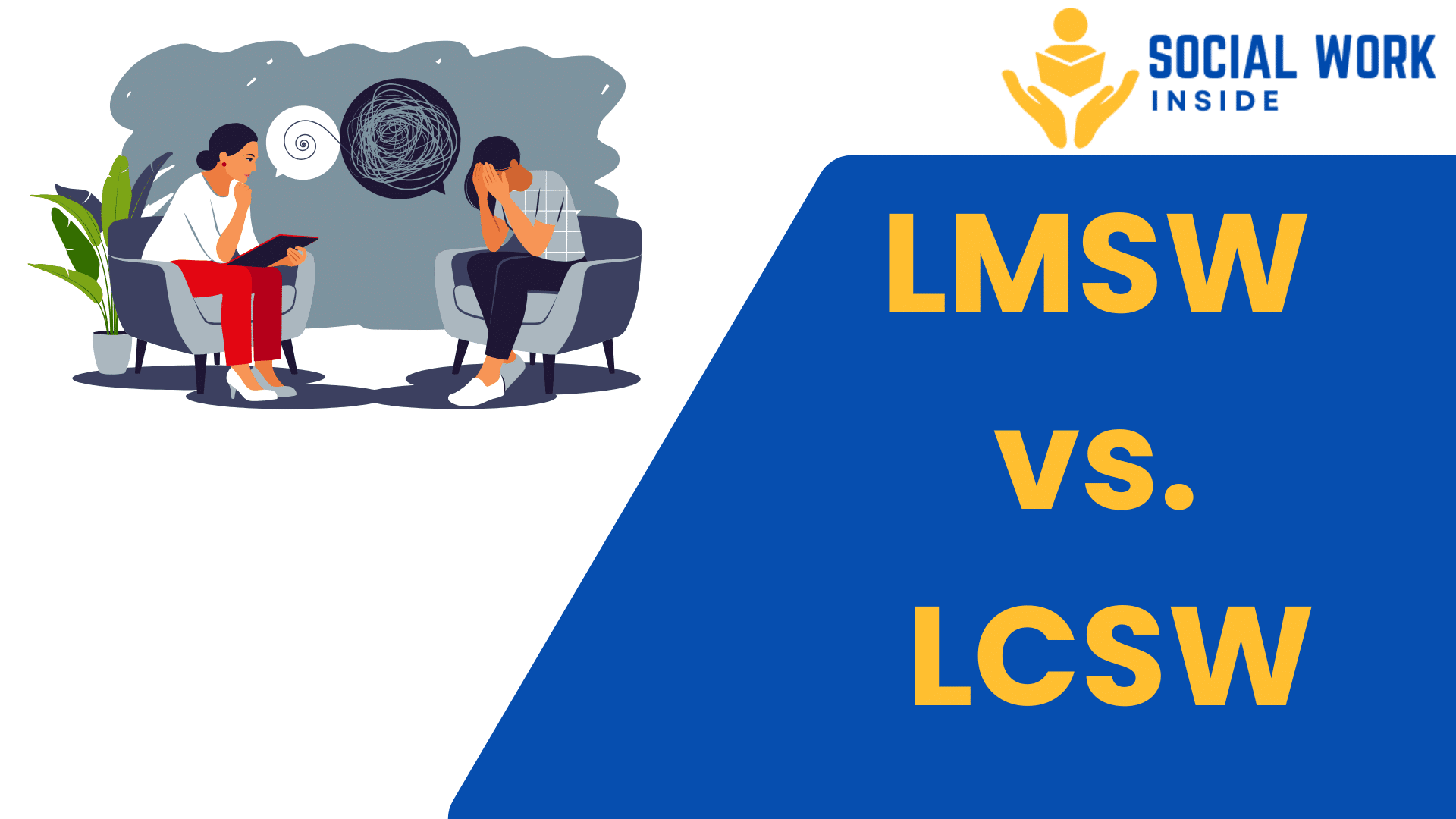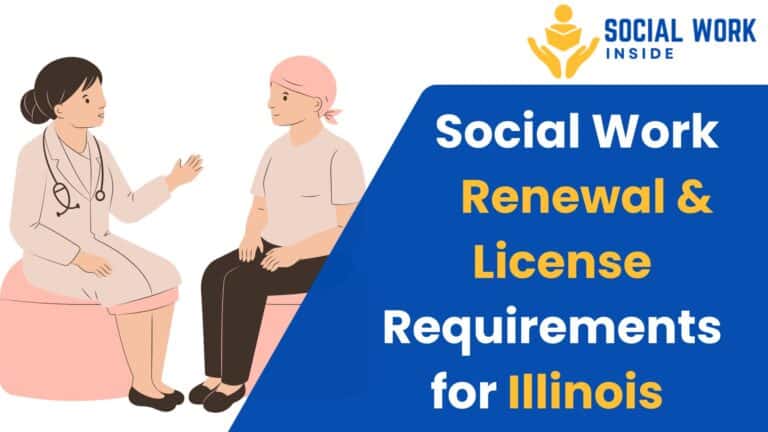LMSW vs. LCSW: Understanding the Differences and Their Meaning in Social Work

When it comes to the field of social work, the acronyms LMSW and LCSW are often used interchangeably, but they represent distinct roles, responsibilities, and levels of expertise. If you’re considering a career in social work or are simply curious about the differences between these two credentials, this blog will provide a detailed breakdown of LMSW vs. LCSW, their meanings, and the various aspects that set them apart.
What Do LMSW and LCSW Stand For?
- LMSW: Licensed Master Social Worker
- LCSW: Licensed Clinical Social Worker
Both credentials are earned by social workers, but they differ in terms of scope of practice, licensing requirements, and career opportunities. Let’s dive deeper into what each of these titles means.
If you’re still exploring which social work degree to pursue, check out this detailed comparison of MSW vs MSSW vs MSSA degrees to make an informed decision.
Educational Requirements
LMSW:
To become an LMSW, you must first earn a Master of Social Work (MSW) degree from an accredited program. The MSW program typically takes two years to complete and includes coursework in social work theory, research, and practice, as well as supervised fieldwork.
LCSW:
The LCSW also requires an MSW degree, but it goes a step further. After earning the MSW, aspiring LCSWs must complete additional clinical training and supervised hours (usually 2-3 years) in a clinical setting. This training focuses on diagnosing and treating mental health conditions, providing therapy, and developing advanced clinical skills.
Licensing and Examination
LMSW:
After completing the MSW program, individuals must pass the Association of Social Work Boards (ASWB) Master’s Exam to become licensed as an LMSW. This exam tests general social work knowledge and practice skills.
LCSW:
To become an LCSW, social workers must first obtain their LMSW license and then complete the required clinical hours. After fulfilling the clinical experience requirement, they must pass the ASWB Clinical Exam, which focuses on clinical knowledge, diagnosis, and treatment planning.
LMSW vs. LCSW: What’s the Difference?
Hey there! Have you ever heard the terms LMSW and LCSW and wondered what they mean? Maybe you’ve seen them on a business card or in a job description and thought, “What’s the difference?” Well, you’re in the right place! Today, we’re going to break it all down in a super simple way so you can understand what these titles mean and how they’re different. Let’s dive in!
LMSW or LCSW Which Path is Best for Me?
If you’re thinking about becoming a social worker, you might be wondering: Should I go for an LMSW or an LCSW? The answer depends on what you want to do in your career. Do you love helping people one-on-one, like being a therapist? Or do you prefer working on big projects that help whole communities? We’ll help you figure it out!
Similarities and Differences Between an LMSW and an LCSW
Similarities
- Both LMSWs and LCSWs are social workers who help people in need.
- They both need a Master’s degree in Social Work (MSW) to get started.
- Both have to pass a big test to get their license.
Differences
- LMSWs focus more on helping communities and connecting people to resources.
- LCSWs are trained to provide therapy and help people with mental health challenges.
- LCSWs need more training and supervised hours after getting their degree.
Scope of Practice
LMSW:
LMSWs are trained to provide a wide range of social work services, including case management, advocacy, and community outreach. They often work in non-clinical settings such as schools, government agencies, and non-profit organizations. While they can provide counseling and support, they are not authorized to diagnose mental health conditions or provide clinical therapy independently.
LCSW:
LCSWs have a broader scope of practice, particularly in the clinical realm. They are qualified to diagnose and treat mental health disorders, provide psychotherapy, and develop treatment plans. LCSWs often work in private practice, hospitals, mental health clinics, and other clinical settings. Their advanced training allows them to address complex psychological and emotional issues.
Average MSW Salary in 2025 – What You Should Expect
Licensed Master Social Worker (LMSW)
What is an LMSW?
An LMSW is a Licensed Master Social Worker. They are like superheroes who help people find the resources they need, like food, housing, or counseling. They work in schools, hospitals, and even government offices.
LMSW Requirements
To become an LMSW, you need to:
- Get a Master’s degree in Social Work.
- Pass a licensing exam.
- Sometimes, I complete a little bit of supervised work.
LMSW Salary
LMSWs usually earn between
45,000and
45,000and60,000 a year. Not too shabby for helping people every day!
LMSW Careers
LMSWs can work in lots of cool places, like:
- Schools (helping kids and families)
- Non-profits (helping communities)
- Hospitals (helping patients and families)
Licensed Clinical Social Worker (LCSW)
What is an LCSW?
An LCSW is a Licensed Clinical Social Worker. They are like therapists who help people with their feelings, thoughts, and mental health. They can work in private offices, hospitals, or clinics.
LCSW Programs
To become an LCSW, you need to:
- Get a Master’s degree in Social Work.
- Complete extra training and supervised hours (about 2-3 years).
- Pass a harder licensing exam.
What Does an LCSW Do?
LCSWs do things like:
- Provide therapy to individuals, families, or groups.
- Diagnose and treat mental health conditions.
- Help people cope with stress, anxiety, or depression.
I Suggest you this Reading also: Guide to Types of Social Work licenses Levels
Supervision and Independence
LMSW:
LMSWs often work under the supervision of an LCSW or another licensed professional, especially when providing counseling or mental health services. They may need supervision to sign off on certain tasks or decisions.
LCSW:
LCSWs have the autonomy to practice independently, diagnose mental health conditions, and provide therapy without supervision. This independence is a key distinction and a major reason why many social workers pursue LCSW licensure.
Which Path Should You Choose?
The decision between becoming an LMSW or an LCSW depends on your career goals and interests:
- Choose LMSW if you’re interested in macro-level social work, such as policy, advocacy, or community organizing, or if you prefer non-clinical roles.
- Choose LCSW if you’re passionate about providing therapy, diagnosing mental health conditions, and working directly with clients in a clinical setting.
Suggested: Top Jobs After MSW, MSSW, or MSSA: Find Your Best Career Path
The Importance of Both Roles
Both LMSWs and LCSWs play vital roles in the social work profession. LMSWs often serve as the backbone of social services, addressing systemic issues and connecting individuals with resources. LCSWs, on the other hand, provide critical mental health support and help individuals navigate personal challenges. Together, they contribute to the overall well-being of individuals and communities.







26 Comments